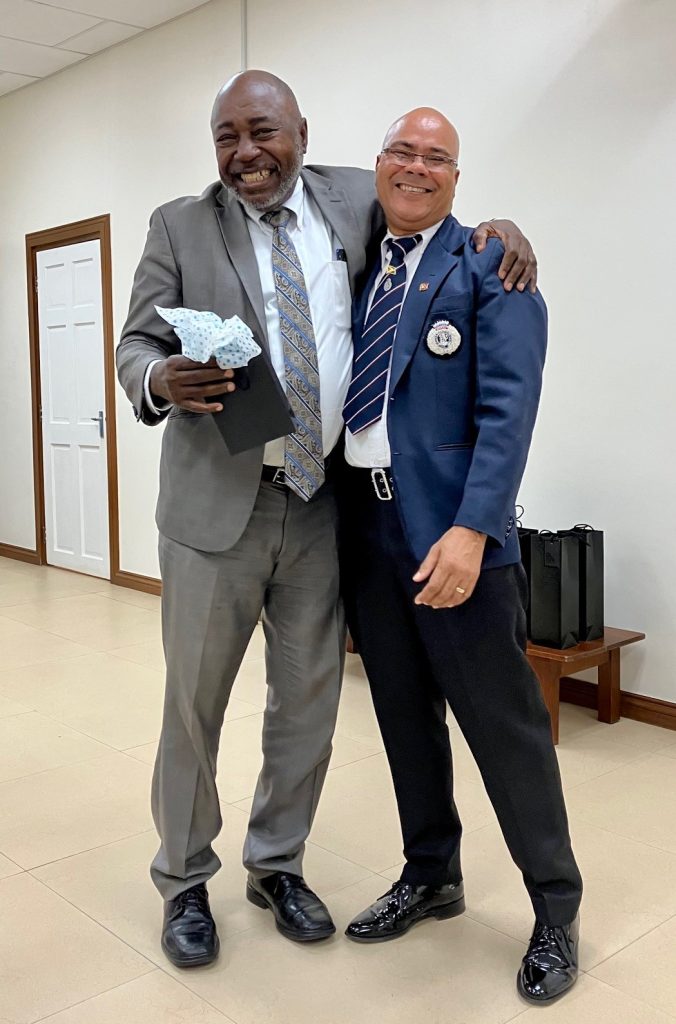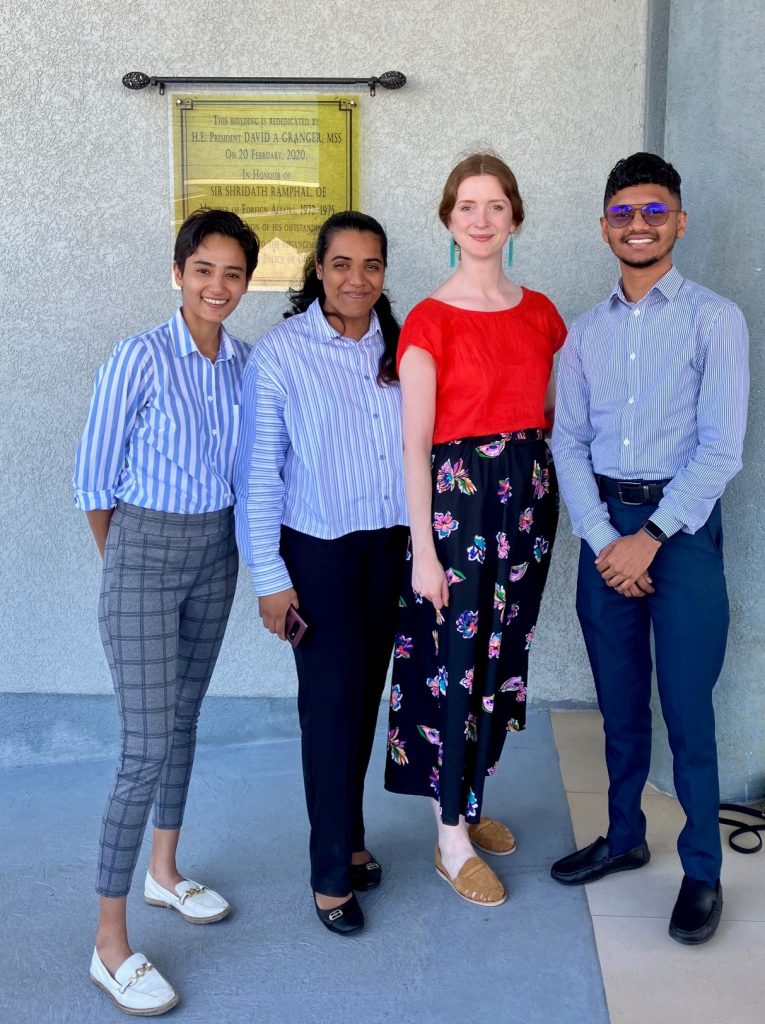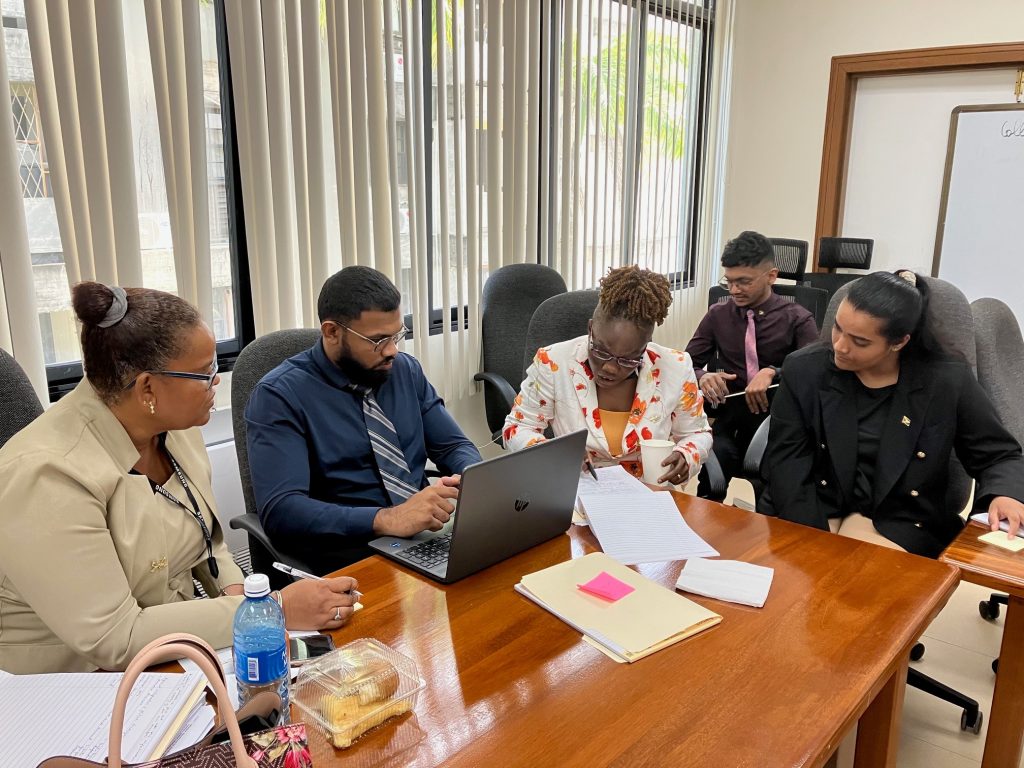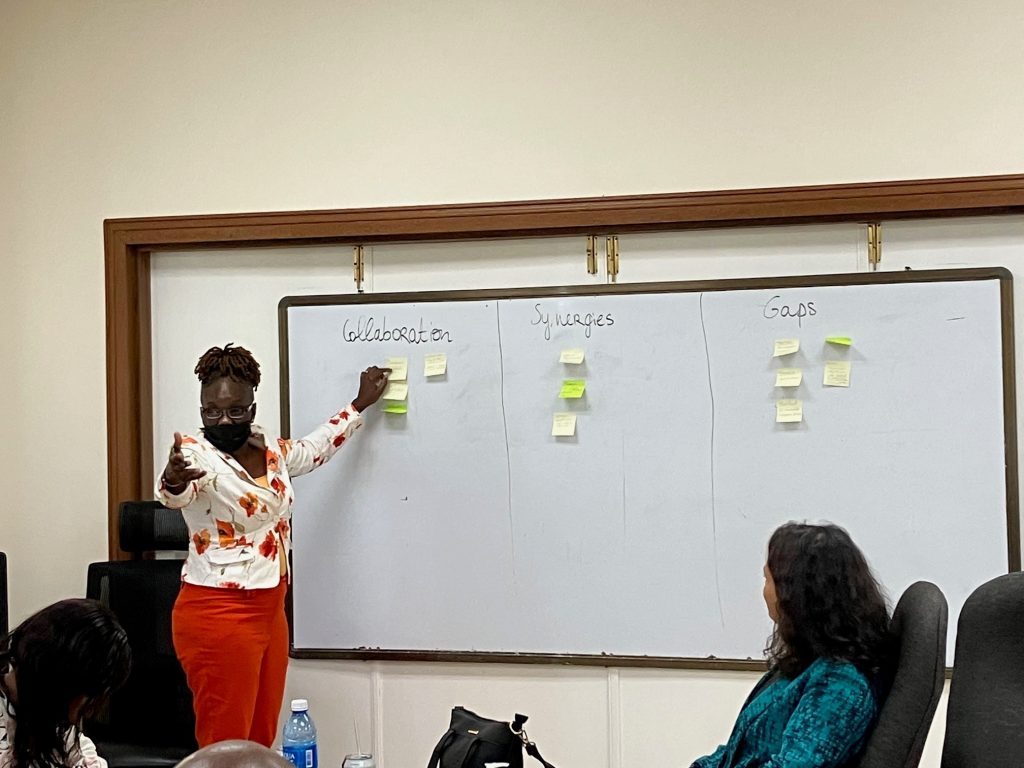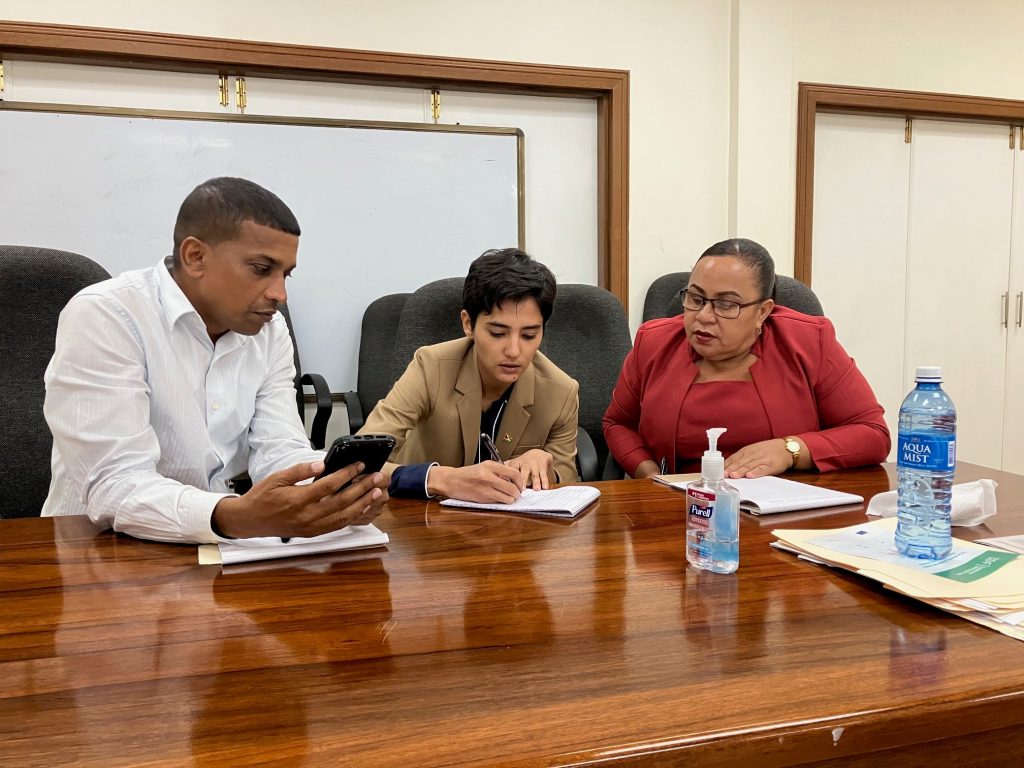
As part of the action to support the Diaspora Unit of Guyana, we ran a peer exchange with the governments of Jamaica and Trinidad and Tobago to discuss approaches to diaspora engagement, digitalisation of services and skills transfer programmes.
There is a great deal to be learnt through discussion amongst peers. Multi-government exchanges are an excellent opportunity to share practices, discuss challenges, learn from failures and be inspired by successes. At the start of June, three of the most diaspora-active countries in the Caribbean came together to do just this.
In Georgetown, Guyana’s Diaspora Unit convened a staggering 15 of its fellow government agencies (because diaspora interact with almost all agencies at one time or another) for a peer exchange with the governments of near-neighbours Jamaica and Trinidad and Tobago.
Proximity, parity and parallels
As well as being in the same region and members of the Caribbean Community (CARICOM), Guyana, Jamaica and Trinidad and Tobago each have rich histories and active presents in diaspora engagement. Notably, all three countries have an institution dedicated to diaspora engagement and a diaspora policy (Guyana’s is in draft) – the only three in the region with both. They also all have large diasporas which are predominantly in the same countries (USA, Canada, UK and within the Caribbean). These similarities mean that, in theory, practices shared by one country can be more readily applied in another, and that lessons learnt in one often ring true in another. Although, of course, any diaspora engagement initiative will still require tailoring to the nuances of the country and its overseas community.
In addition to these similarities, Trinidad and Tobago’s economic history is interesting in the context of Guyana’s burgeoning oil and gas sector, whilst its newly-merged CSME (CARICOM Single Market and Economy) and Diaspora Affairs Unit is at a prime moment to learn from its peers’ establishment journeys.
Discussion in the two-day peer exchange was dynamic, dealing with everything from strategic questions of diaspora identity and belonging – particularly for second, third and later generations who may increasingly identify at a regional level, especially for those who study in the multi-location University of the West Indies – to the nitty-gritty of applying for passports from overseas and the scope of digital IDs.
Peers from near and far
Combining intra and inter-regional peer learning is a great way to take knowledge from around the world and use it to inspire initiatives that are suitable to the local/regional context.
As well as learning from within the Caribbean, practices from other countries, namely Moldova, Romania and Lithuania, were brought in and explored for their interesting skills transfer initiatives and the digital platforms on which they run. Whilst these countries have different diaspora profiles and engagement histories, making them less directly comparable to the Caribbean peers, discussing tried-and-tested initiatives from beyond the region helps inject new ideas and serve as an opportunity to discuss how to adapt an idea to the local context. The peer profiles also provide concrete steps to set up a skills transfer platform, something which is a top interest for Guyana, as well as many other countries EUDiF has interacted with.
Coming soon…
At the end of the peer exchange in Georgetown, the question of when to reconvene was already on the table. Excitingly, the heads of the three diaspora units will meet again at the EUDiF Future Forum in October, and we hope this will the beginning of regional discussions on diaspora engagement.
EUDiF will continue to support the Diaspora Unit of Guyana by developing resources to support its work on digitalisation of services for the diaspora and planning for skills transfer campaigns. Read more about the activities under our partnership with the Diaspora Unit:
EUDiF would like to thank the Diaspora Unit from Guyana for the warm welcome and fruitful partnerships; Joanne Brooks for representing Trinidad and Tobago; Lloyd Wilks for representing Jamaica; and each representative from the different Guyanese government agencies for their time and enthusiasm during the workshops.
